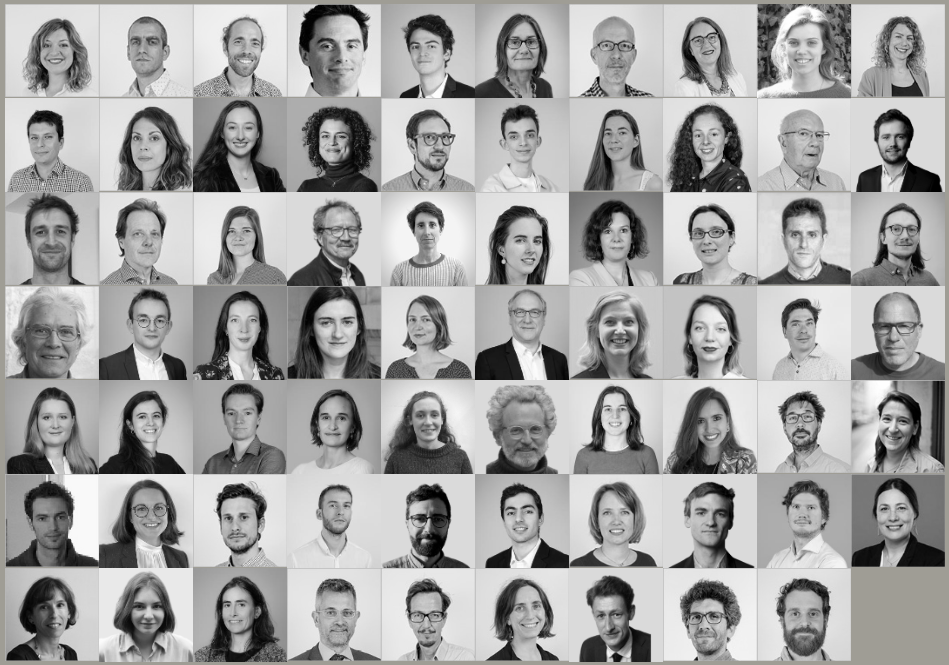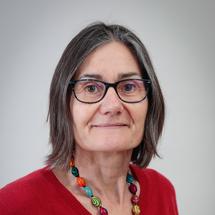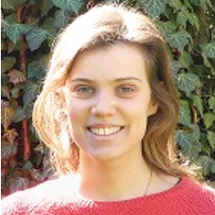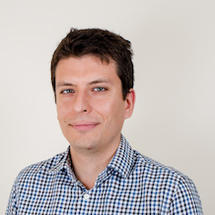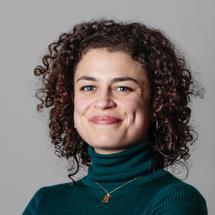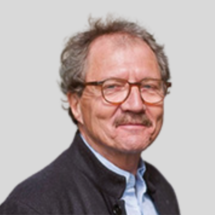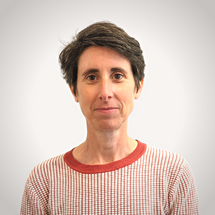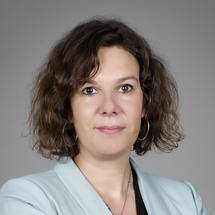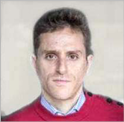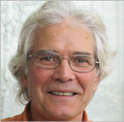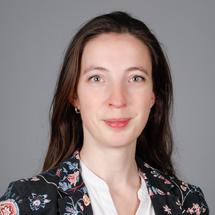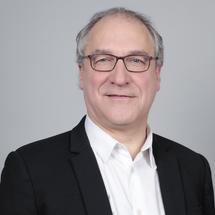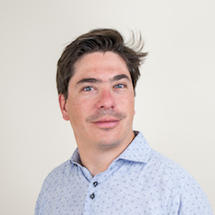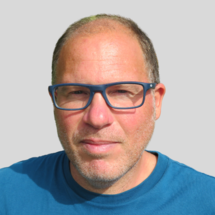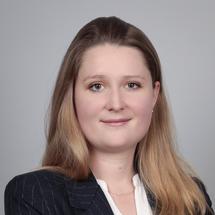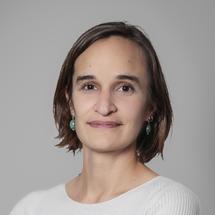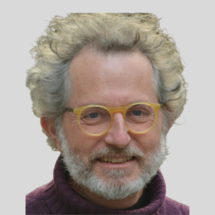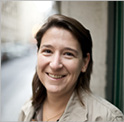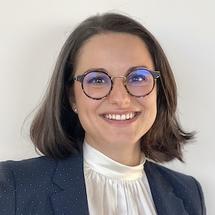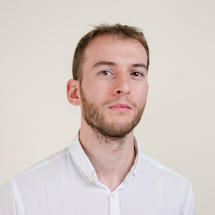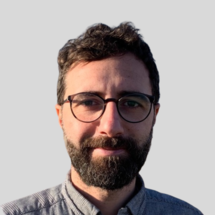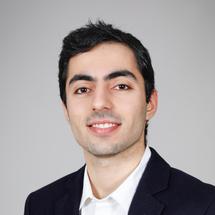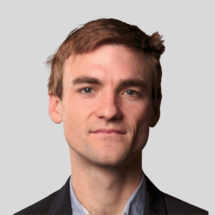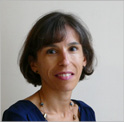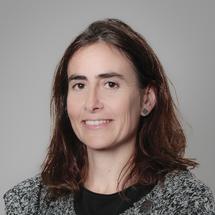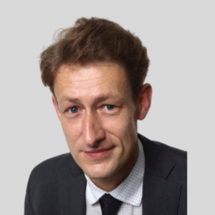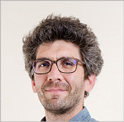FOREWORD
The challenge of forging a new pact between the Global South and the Global North

The issue of transferring financial flows from the Global North to the Global South has become central to most environmental negotiations. Structuring negotiations in this way gives cause for concern, both in terms of the effectiveness of global environmental action and in terms of justice. For too long, Global North countries, unable to fully implement their commitments to reduce greenhouse gas emissions at home, focused on mitigation efforts in the Global South, promising them financial aid to do so. But in this game of posturing, the Global South was able to use these unmet promises as excuses not to act. Can we avoid falling into this trap again?
The Global South’s need for financial flows is today far greater and more fundamental than a currency to act in favour of the climate. For many poor or vulnerable countries, everything is conspiring to take them farther away from the prospects of economic catch-up that they could have envisaged even five years ago. Factors include: increasingly difficult access to financial markets; rising interest rates in the Global North; a possible race for State aid between the United States, China and Europe; profound debt problems due to the consequences of the COVID-19 pandemic and the war in Ukraine; the particularly strong impact of climate disasters. Halfway through the UN 2030 Agenda, the sustainable development investment gap continues to grow rather than diminish.
Redefining the foundations of the international financial system has hence become essential, to restore much-needed investment capacity in the Global South and ensure that the low-carbon world of tomorrow–in which all the economic powers want to reindustrialise–does not relegate the poorest countries to the role of mere raw material suppliers. The economic and geopolitical rivalry between the United States and China, and the shift in economic power towards Asia, are changing the different blocs’ respective roles. European countries are particularly in the hot seat: their ambitious Green Deal, but also their colonial history, are forcing them to be at the forefront of the redefinition of this global pact.
Against this backdrop, the Summit for a New Global Financial Pact held in Paris in June 2023 was a key element in the political momentum needed to relaunch international cooperation on global public goods, as well as partnerships between the Global North and the most vulnerable countries. At the same time, BRICS countries are asserting themselves ever more forcefully as a key player, and their successive presidencies of the G20 (India, Brazil) will have to succeed in demonstrating this by moving the fault lines in the international financial system. Hence, we may be only at the very fragile beginning of seeing a new global pact emerge.
Sébastien Treyer, IDDRI’s Executive Director
“Working together on climate, biodiversity and development: it’s our trademark, and the key to our international impact”
Léna Spinazzé, IDDRI’s Deputy Director
In this video, Léna Spinazzé, IDDRI’s Deputy Director, uses a few concrete examples to explain the Institute’s impact strategies.
2022-2023
ANNUAL REPORT
2022-2023
RAPPORT ANNUEL
INTERNATIONAL BIODIVERSITY AGREEMENTS: SUCCESSES FACING THE CHALLENGES OF IMPLEMENTATION
Biodiversity
Substantial progress at COP15
The Aichi Biodiversity Targets set in 2010 for 2020, have not been achieved. In addition to participating in the important discussions of the post-2020 global framework ambition and the quantification of targets (such as protected areas or pesticide reduction), IDDRI is one of the few players to have proposed and promoted a robust transparency mechanism in the framework, which was lacking in the Aichi targets, and yet is central to provide real substance to the commitments. IDDRI also conducted in-depth work over two years on the key issue of financing biodiversity protection in developing countries.
IDDRI produced technical and legal reports, advanced recommendations and blog posts, and organised dialogue workshops between negotiators for French-speaking delegations.
The Kunming-Montreal Global Biodiversity Framework, adopted in December 2022 at the Convention on Biological Diversity (CBD) COP15:
- Establishes a regular process for monitoring commitments via individual and collective obligations (through a global review to be held at COP17 and COP19);
- Sets ‘real-economy’ obligations, i.e., for different sectors such as agriculture, aquaculture, fisheries, forestry and finance;
- Creates a trust fund to support the implementation of the global biodiversity framework, under the aegis of the Global Environment Facility.
and Juliette Landry (IDDRI)
01/23 BLOG POST – A new era for global biodiversity?
12/22 SCIENTIFIC PUBLICATION – The global biodiversity framework needs a robust action agenda
11/22 STUDY – Implementing the Post-2020 Global Biodiversity Framework: financial mechanism
11/22 POLICY BRIEF – For an effective implementation of the post-2020 global biodiversity framework: what is needed at CBD COP15 and beyond
12/22 MEDIA – ‘Silent’ China sparks fear of biodiversity summit failure, POLITICO with Sébastien Treyer
12/22 MEDIA – Un compromis proposé par la Chine à la COP15 sur la biodiversité, LE FIGARO with Juliette Landry [content in French]
01/23 REPLAY WEBINAR – Biodiversity COP15: what outcomes? [content in French]
02/23 PODCAST – Biodiversity: translating a global ambition into action [content in French]
the outcome of COP 15
the outcome of COP15
High Seas A landmark treaty
On 4 March 2023, agreement was reached to establish a binding international treaty on the conservation and sustainable use of biodiversity in the high seas, i.e., in areas beyond national jurisdiction, which cover more than half of the planet’s surface. The treaty puts in place processes to protect the marine environment, resolves a long-standing dispute over the principle of the common heritage of mankind, and strengthens capacity building and technology transfer, enabling all states to take part in the management of this vast common good.
IDDRI has actively contributed to these negotiations over the last fifteen years, through:
- An agenda-setting role: for many years, IDDRI’s mission was to support the formal opening of negotiations (first papers, negotiators’ dialogues and international conferences from 2008 onwards);
Advancing proposals on the treaty’s content (via policy briefs, scientific studies and papers, workshops, bilateral meetings, etc.); - Alerting on the need to anticipate the conditions of the treaty’s implementation, in particular its “control, monitoring and surveillance” section;
- Extensive press coverage initiated by IDDRI, which helped put the subject in the headlines;
- Creating a “French community of stakeholders interested in the high seas” via the National High Seas Informal Group, which met nearly twenty times since 2008.
05/23 ISSUE BRIEF – Digging deep: critical questions remain in the rush to regulate seabed mining
02/23 POLICY BRIEF – Initial reflections to support rapid, effective and equitable implementation of the BBNJ Agreement
11/22 SCIENTIFIC PUBLICATION – Getting beyond yes: fast-tracking implementation of the United Nations agreement for marine biodiversity beyond national jurisdiction
09/22 BLOG POST – Bringing the ship to shore: Significant progress towards a high seas biodiversity treaty
03/23 MEDIA – INTERVIEW –Traité sur les océans : “Un très grand pas pour la protection de la haute mer”, L’EXPRESS [content in French]
04/23 REPLAY WEBINAR – Post-2020 Global Biodiversity Framework: what’s next for the Ocean?
03/23 REPLAY WEBINAR – High seas treaty: preliminary analysis and implementation challenges [content in English & French]
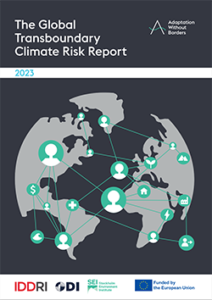
ADAPTATION WITHOUT BORDERS
The Adaptation Without Borders initiative, co-led by IDDRI and the think tanks Stockholm Environment Institute (SEI) and Overseas Development Institute (ODI), aims to create the tools and tactics needed to identify, assess, and manage cross-border climate risks in order to encourage greater regional and international cooperation. The European Commission (DG CLIMA) supports the initiative since 2021. In April 2023, the initiative's work culminated in a report paving the way for a structured dialogue on the forms of international cooperation that are essential for adaptation, going beyond mere financial transfers between countries.
Anisimov A., Magnan A.K. (eds.) (2023). The global transboundary climate risk report.
IDDRI & Adaptation Without Borders. 114 pages.
STRENGTHENING NORTH-SOUTH DIALOGUE AND COOPERATION
Finance Debating the reform of the international financial system
The delay in implementing the Sustainable Development Goals (SDGs) and the growing difficulties faced by developing countries in accessing finance have accelerated the timetable for a reform of the international financial institutions. This reform would affect the World Bank and the International Monetary Fund (IMF) governance and lending practices. In 2023, there will be a number of opportunities to take this debate forward, including the Paris Summit for a New Global Financial Pact in June, in support of the Bridgetown Initiative of Barbadian Prime Minister Mia Mottley, and the G20 Summit in New Delhi in September.
In order to help pave the way for this debate, IDDRI has:
- organised a series of workshops to support the dialogue on a possible reform at European and international level;
- put forward proposals to ensure that multilateral banks are better able to respond to the challenges of the SDGs, as well as to participate in so-called innovative financing avenues, in particular the proposed tax on international maritime transport (see also the section on financing “loss and damage”);
- organised initiatives to help the press understand what is at stake and therefore helping to put this topic on the media agenda.
- 06/23 NOTE Designing a greenhouse gases (GHG) levy supporting an equitable low-carbon and resilient transition of international shipping under the IMO
- 04/23 BLOG POST Spring Meetings in Washington: step 1 for the reform of the international financial institutions
- 01/23 BLOG POST Reforming the World Bank: 3 ideas for an effective sustainable roadmap
- 10/22 BLOG POST To cope with a long and perfect storm, what evolution of international financial institutions?
- 10/22 STUDY Operationalising multilateral development banks’ alignment with the 2030 Agenda
06/23 MEDIA Macron veut un choc de financement pour le Sud, LE FIGARO [Content in French]
03/23 PODCAST International financing for sustainable development: 2023, year zero for reforms? [Content in French]
JETP Conditions for success in Africa
Since the announcement of the first Just Energy Transition Partnership (JETP) aimed at phasing out coal in South Africa, JETPs (both existing and planned) have created high expectations. However, criticism has been voiced about what can really be expected in terms of financial backing and the ability to bring about systemic change in a true partnership approach, where developing countries direct and take ownership of the investment plans and policies. IDDRI’s work in the field sheds light on the benefits and potential pitfalls of JETPs.
In June 2023, a JETP in Senegal was announced as part of the Paris Summit for a New Global Financial Pact. It sets two objectives:
- transform the energy system (installed capacity for renewable energy sources to represent 40% by 2030);
- mobilise financing (a combination of grants and loans totalling €2.5 billion).
IDDRI and its network of partners were able to prepare this partnership with Senegalese stakeholders on the basis of a work agenda co-constructed by African and European experts within the Ukȧmȧ platform (based on three country studies: South Africa, Senegal, and Nigeria) (see below to learn more about the DDP network’s work on the same themes in India and Indonesia).
05/23 OP-ED Just energy transition for Africa dependent on transformative national processes, PREMIUM TIMES, Nigeria
11/22 BLOG POST Just Energy Transition Partnerships: can they really make a difference, and how?
04/23 INTERVIEW ”Les partenariats pour la transition énergétique juste doivent mieux refléter les contextes locaux” (C. Okereke), AEF [Content in French]
Deep Decarbonization Pathways
Linking climate and development
How can we develop socio-economically in a world that is set to become carbon neutral by 2050? This is the challenge that the partners in the Deep Decarbonization Pathways network, active in 40 countries, have been working on together for ten years.
In addition to their in-depth work in the field prior to the conclusion of the Senegalese JETP, their interventions in other countries help to guide the debates with the aim of involving all the stakeholders. In recent months, for example:
- in India, a first-of-its-kind process has been set up to discuss the future of coal with the main players in the coal industry;
- in Indonesia, the necessary transformations have been identified thanks to the long-term strategy, prepared in advance of the political announcement of the Partnership for a Just Energy Transition;
- in China, the governance of the gradual elimination of coal is being studied in order to determine the approach to be adopted for implementation at sub-national level (who does what first, and how to incentivise/compensate the private sector).
In all these cases, the foundations of the DDP approach were used as a basis:
- work on long-term strategies and local planning capacity;
- building a development narrative that anchors energy transition plans in national development priorities;
- setting up processes, partnerships and institutions at national level as a necessary condition for policy implementation.
06/23 BLOG POST What have JETPs delivered so far? Lessons from ongoing processes
04/23 SCIENTIFIC PUBLICATION Passenger transport decarbonization in emerging economies: policy lessons from modelling long-term deep decarbonization pathways
09/22 BLOG POST How countries can enable 15 transformations to achieve carbon-free prosperity
07/22 REPORT Achieving net-zero prosperity: How governments can unlock 15 essential transformations
03/23 PODCAST Decarbonising maritime transport: reducing distances to reduce emissions [Content in French]
Climate
Towards financing loss and damage
The efforts of vulnerable countries and civil society culminated at COP27 in Sharm el-Sheikh in the decision to create a financing mechanism dedicated to loss and damage, i.e. the unavoidable damage linked to the consequences of global warming, at COP27 in Sharm el-Sheikh, despite arguments pointing to the risks of fragmentation and the slow implementation of a new institution,
IDDRI has published several papers on this subject, including:
- in June 2022, recommendations for the European Union’s strategy, aimed at developing more integrated approaches to governance and financing and accounting for risks other than extreme events;
- in April 2023, an overview of the main existing or planned sources of funding that could increase available climate finance and which could be earmarked for loss and damage (in particular taxes on the extraction of or greenhouse gasses emitted by fossil fuels, on air transport or on maritime transport), and an invitation to discuss them as part of the Bridgetown initiative;
- in June 2023, a study examining the scientific, legal and political aspects of the notion of countries’ climate vulnerability, a sensitive issue that is key to targeting priority countries for support.
IDDRI’s proposals provide recommendations and good practices for the constitution of an effective and fair mechanism, the terms of which are due to be adopted at COP28 in December 2023.
06/23 STUDY Defining climate vulnerability in the context of Loss & Damage: a scientific, legal and political question
04/23 NOTE Financing loss and damage: Overview of tax/levy instruments under discussion
11/22 BLOG POST COP27 and Loss and damage: only one side of the coin triumphed in Sharm-el-Sheikh
06/22 POLICY BRIEF COP27 and Loss and damage: only one side of the coin triumphed in Sharm-el-Sheikh
11/22 MEDIA COP27 : with son projet d’aide aux pays les plus vulnérables au changement climatique, « l’UE donne un très bon signal » LIBÉRATION interview with Lola Vallejo [content in French]
11/22 MEDIA Las finanzas climáticas, una roca dura de roer EFE VERDE (Spain) with Anna Pérez-Català [content in Spanish]
11/22 REPLAY COP27: what outcomes? [content in French]
05/23 PODCAST Loss and damage: how to deal with the inevitable impacts of climate change? [content in French]
11/22 RADIO Les petits états insulaires sur le front RFI – with Alexandre Magnan [content in French]
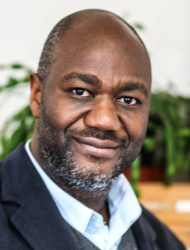
These think tanks are working together on the issue of sustainable transition in Africa in order to promote shared prosperity on both continents, which is completely unprecedented.”
Chucks Okereke quote from AEF - about the Ukama network - 04/23
DEFENDING TRANSITION POLICIES IN EUROPE AGAINST THE BACKDROP OF WAR
Europe Overcoming crises, increasing ambition
In the space of a few weeks, the outbreak of war on the European continent, at a time when France held the presidency of the European Union (FPEU), prompted striking questions about its energy dependence and the limits of its industrial and agricultural apparatuses, with contrasting effects on the momentum for transition that startedin 2019 with the European Green Deal.
Against this backdrop, IDDRI, as part of its network of European think tanks Think Sustainable Europe (TSE), organised a two-day high-level conference in Paris in June 2022 to initiate a continent-wide dialogue on the support needed for the European Green Deal. As the baton was passed from the French Presidency to the Czech Republic, recommendations were made in the presence of representatives of the Commission, Parliament and Council on key issues:
- the social impact of the ‘Fit For 55’ climate legislation package;
- the implementation of the carbon border adjustment mechanism (CBAM);
- the development of regulations to promote a sustainable food system;
- the opportunities created by the future Nature Restoration Law.
Ten months later, in April 2023, IDDRI took part in a new European dialogue between experts and decision-makers in Stockholm, tackling the issue of sustainability through the prism of broader questions facing the EU: security and geopolitics, innovation and competitiveness, and social inclusion in societal transitions.
Ben Allen and Jo Sullivan (IEEP)
02/23 BLOG POST Three priorities for the Green Deal Industrial Plan
09/22 BLOG POST Autonomy, democracy, solidarity: the Green Deal still at the heart of the State of the European Union speech
07/22 BLOG POST Strengthening the European Green Deal at mid-term: rebalancing policies, increasing implementation
07/22 POLICY BRIEF The European Green Deal and the war in Ukraine: Addressing crises in the short and long term
06/22 BLOG POST The Green Deal is and remains at the heart of the European project
07/22 MEDIA Présidence française de l’UE : un bilan durable en 7 questions clefs (PFUE) RSE DATA NEWS with Sébastien Treyer [content in French]
07/22 PODCAST The environmental record of the French Presidency of the European Union [content in French]
in June 2022
of the FPEU
Agriculture Defending the Farm to Fork Strategy
The Farm to Fork Strategy (F2F) is the agricultural and food component of the European Green Deal, setting out the vision for the future of EU food and farming systems. This vision is set to be translated into policy by a framework law on Sustainable Food Systems (SFS Law) which should be published by the end of 2023.
In the highly adverse political context (Covid-19, war in Ukraine, high inflation), which has boosted opponents of the F2F, IDDRI has sought to maintain the highest possible level of ambition for the SFS Law through analyses and proposals, submitted to the European Commission, the European Parliament and Brussels-based NGOs (brought together in the Food Policy Coalition). To ensure that the future law is fit for purpose, IDDRI recommends a debate on the future of the EU’s food system, taking into account:
- the need for a strong link between supply and demand measures;
- the importance of paying equal attention to climate change and the preservation of biodiversity, including within agricultural systems.
The Commission has stood its ground and is expected to put forward a proposal for the SFS Law before the end of 2023. IDDRI will be paying particular attention to three key elements: whether this law includes national action plans, works on food supply and demand at the same time, and whether it contains binding minimum sustainability requirements.
02/23 BLOG POST Should we (already) be thinking about the next reform of the Common Agricultural Policy?
12/22 BLOG POST Towards a transformative SFS legislative framework: in need of a constructive debate on the meaning of “sustainable food system”
09/22 REPORT Towards a Transformative Sustainable Food System Legislative Framework
02/23 MEDIA Pacte vert européen : après l’énergie, l’agriculture ? RSE Data News [content in French]
01/23 RADIO Viande : des horizons bouchés ? FRANCE CULTURE – Xavier Poux [content in French]
Energy Shedding light on the confusing debate on the energy transition
When it comes to energy transition questions in Europe, IDDRI’s main role in a particularly dense ecosystem is to lead a community of players in France. It is also involved in coalitions of think tanks in several Member States, focusing on issues that are poorly covered in the debate, including:
- moving from a short-term crisis management approach to a medium-term resilience-building approach, for example by changing the French energy tariff shield, which is unsustainable from a social point of view, with the risk of crowding out the necessary increase in investment in the transition (e.g. energy renovation of buildings);
- developing a more constructive narrative on the issues involved in reforming the European electricity market in relation to the challenges facing France;
- accelerating the development of hydrogen in the most beneficial way possible, i.e. by getting public authorities to take an interest in structuring the commercial demand for hydrogen for the highest-priority uses. Thanks to numerous exchanges, this notion has made headway among French experts and political decision-makers, but there is still some controversy over the exact sectors to be developed (particularly truck transport, the electricity sector and high-temperature heat in industry).
01/23 SCIENTIFIC PUBLICATION Exiting the Energy Crisis: Lessons Learned from the Energy Price Cap Policy in France
01/23 ARTICLE Accelerating the energy transition in a context of crisis: a perspective of the associated challenges
09/22 POLICY BRIEF The EU gas package post-Ukraine invasion
09/22 REPORT Delivering climate targets: How can EU policy support a just transition?
01/23 MEDIA Ines Bouacida : « L’énergie de demain, c’est un autre monde » L’OBS interview with Ines Bouacida [content in French]
11/22 MEDIA L’hydrogène vert, mirage ou miracle ? LIBÉRATION with Ines Bouacida [content in French]
04/23 PODCAST Energy crisis in Europe: a turning point for the transition? [content in French]
12/22 PODCAST Buildings’ efficient renovation to address the energy and social crises [content in French]
06/22 PODCAST Hydrogen, the new eldorado or a false lead? [content in French]
the energy crisis in Europe
PODCASTS
Cap sur la transition :
NEWSLETTER
Increased visibility, with:
(increase)
ADDRESSING SOCIAL ISSUES TO MAKE THE TRANSITION A SUCCESS
Mobility Helping the most vulnerable people to achieve carbon-free mobility
Four years after the Yellow Vests crisis, which initially arose from a carbon tax hike, IDDRI’s major angle of work on mobility in France focuses on taking social aspects of the transition in mobility into account so that they do not stall necessary changes.
- IDDRI suggests a complete overhaul of the road tax system: benefits in kind, fleet renewal quotas, depreciation, additional depreciation, ownership vehicle tax band.
- IDDRI proposes a social leasing solution for vulnerable groups affected by the introduction of low-emission zones (ZFE).
- The Greater Paris Metropole (“Grand Paris”) is relying in part on IDDRI’s analyses to set up its ZFE.
IDDRI suggests lowering the share of gas-fuelled truck sales from 25% to 5% in the next scenario of the French National Low-Carbon Strategy (SNBC).
Several of these proposals, including an overhaul of the tax system, are currently being studied by the government. Social leasing should be introduced in 2023.
IDDRI is also involved in the circle of other key European organisations in the transport sector (International Council on Clean Transportation, T&E Europe and Agora Verkehrswende), working on issues such as the carbon footprint of batteries, critical raw materials, the circular economy and the decarbonisation of truck transport.
01/23 BLOG POST European battery regulation: an exemplary step forward in more ways than one
01/23 ISSUE BRIEF What will be the role of bio-CNG/LNG in road transport by 2030 in France?
12/22 REPORT Successfully implementing low-emission mobility zones, with businesses, for businesses
11/22 MEDIA Mobilité à faible émission : des aides insuffisantes, disparates et inaccessibles, alertent les associations LE MONDE [content in French]
06/22 MEDIA L’innovation partagée, moteur de la transition du secteur auto et des mobilités LES ÉCHOS with Jean-Philippe Hermine [content in French]
04/23 PODCAST Critical raw materials in batteries: what is really at stake? [content in French]
12/22 PODCAST Low-emission mobility zones: facing social challenges [content in French]
10/22 PODCAST Road transport transition: how to remove the remaining blockages? [content in French]
Sufficienty Tools for reflection
Reconciling sufficiency in lifestyles and well-being makes it possible to sketch out the contours of a “new social contract defined on the basis of ecological limits. As sufficiency moves up the political agenda in the wake of the energy crisis, IDDRI is continuing to explore ways of thinking about this concept, sharing the intuition of many other players that the solution to the crises will involve a debate on a new social contract.
In concrete terms, on the subject of public policies on food, work carried out in 2022 identified that the idea of bringing about dietary changes among the underprivileged is tainted by prejudice or erroneous assumptions. The “Solidarity Pact”, launched by the French government in November 2022 to form its strategy for combating poverty by the end of the five-year period, incorporates these comments and identifies IDDRI as a source of ideas.
At European level, IDDRI supports the establishment of a framework for fair energy pricing: revenue from energy taxation and the new carbon market should be used as a priority to support the poorest households. This work has been presented to the European Commission, the European Environment Agency, the Organisation for Economic Co-operation and Development and a number of European stakeholders. It has been widely used within EU institutions (Council, Parliament) and some Member States.
04/23 STUDY Environment, inequalities, health: what strategy for French food policies?
10/22 ISSUE BRIEF What social contract for a finite world?
10/22 ISSUE BRIEF An urgent need to combine sufficiency and solidarity
09/22 OTHER PUBLICATION Sustainable food voucher: analyses and proposals to reinforce the accessibility and sustainability of food
04/23 MEDIA Transition écologique : tout ou presque reste à faire en matière de politique alimentaire en France, OUEST FRANCE with Charlie Brocard [content in French]
05/23 REPLAY Environment, inequalities, health: what strategy for French food policies? [content in French]
02/23 PODCAST Food transition: how to produce better, consume better, and inform better [content in French]
01/23 PODCAST Sustainable food for all: overcoming biases to take action [content in French]
07/22 PODCAST Sufficiency, from the individual to the collective [content in French]
06/22 RADIO Les Français appelés à la « sobriété » : pourquoi ce concept très ancien fait son grand retour FRANCE INFO with Mathieu Saujot [content in French]
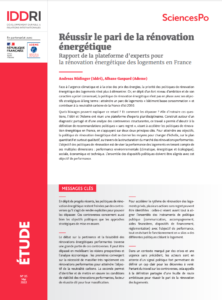
BUILDING RENOVATION
In 2022, IDDRI brought several years of work on the energy renovation of buildings to a close by jointly publishing a report based on in-depth discussions with a platform of experts with The French Agency for Ecological Transition (ADEME). Despite recent progress, energy renovation policies are still hampered by controversy, concerning both political objectives and strategic approaches to implementation. IDDRI's proposals are based on forward-looking visions and economic analysis that will enable energy-efficient renovations to be carried out at a faster pace.
IDDRI
Budget - Governance - Partners - Team
IDDRI's new internal HR policy is an excellent sign of the maturity of this well-established think tank with almost 50 employees, which is planning its growth and skills management."
Didier Hoffschir, French Ministry of Higher Education, Research and Innovation representative on IDDRI’s Board.
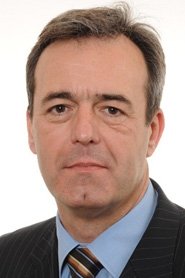
BUDGET
The 2022 accounts, certified by the auditors and approved by the Foundation’s Board of Directors, were established at 4.9 million euros, including staff secondment costs.
(1)
Funding

No Data Found

No Data Found
IDDRI has benefited from the support of its privileged partners who have renewed their annual core funding in support of IDDRI’s activity as a whole, and has been pleased to establish new partnerships in 2022 with Agromousquetaires, Ecocert, Kering and Saint-Gobain.
IDDRI also receives project funding from a large number of funders, as detailed below. Many of these funders have been working with IDDRI for many years, and some have collaborated on its work. We would also like to thank the new partners who have placed their trust in us in 2022, such as the Bosch Foundation for sustainable agriculture and the French Global Environment Facility for sustainable tourism.
This funding enables us to implement the programme defined by IDDRI’s teams in line with the Foundation’s strategic orientations and approved by the Board of Directors. (see the “Financial partners” section)
Expenditure

No Data Found

No Data Found
Most of this funding is earmarked for the research and intervention work of IDDRI and its partners (IDDRI pays out more than a million euros to its partners around the world in addition to its own budget), for communication and support for the implementation of impact strategies (promotion of publications, media relations, web, social networks, etc.) and for the monitoring of institutional relations by the management, and for the running of the Foundation (structural and operating expenses).
The breakdown of expenditure is as follows: 59% for personnel costs, 30% for research partnerships and expertise, 6% for activities (missions, publications, conferences, etc.) and 7% for operating costs.
Exceptionally, from August 2021 until July 2023, IDDRI will host a new structure, the Institute Mobility in Transition, whose aim is to produce analyses and recommendations to help decision-makers understand the challenges of the transition in mobility and transport. The Institute has a budget of €580k for 2022, financed entirely by projects.
GOVERNANCE
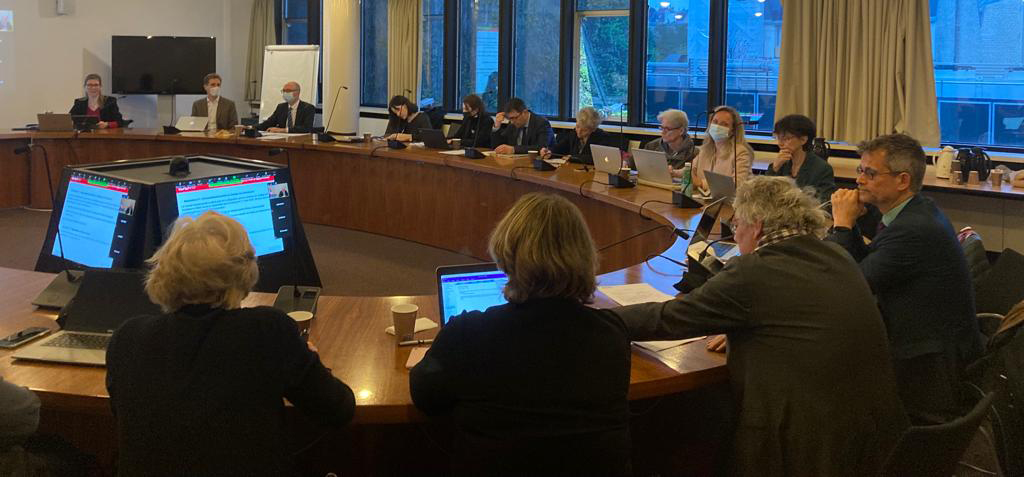
IDDRI’s Board, the decision-making body, is supported by a multidisciplinary Scientific Council, which monitors emerging scientific issues and helps to identify new research topics, and by a strategic Advisory Council, which brings together different stakeholders (representatives of different partner organizations and funding sources) to ensure the relevance of the Institute’s programmes and operating procedures. IDDRI is a public interest foundation. Its Board deliberates under the supervision of a Government Commissioner from the French Ministry of Research appointed by the French Ministry of the Interior who ensures compliance with this statute. The Board has been chaired since 2019 by Michel Eddi, with Jean Jouzel as Honorary Chairman.
FINANCIAL PARTNERS
IDDRI’s financial model is centrally based on the support of its founding members and long-term partners in the form of core funding and in-kind support, which is a guarantee of our intellectual independence, our relevance and our capacity to anticipate.
Focus on our networks
IDDRI’s research and intervention capacities are based not only on a multidisciplinary team, but also on a large network of scientific partners, expertise and influence in France, Europe and internationally. This map shows four major networks in which IDDRI is involved (ETTG, TSE) or which it has created or co-created (DDP, Ukama).
TEAM
IDDRI research fellows teach in a number of Masters programmes, including the School of Public Affairs, the School of International Affairs and the School of Management and Innovation at Sciences Po. IDDRI welcomed seven interns in 2022-2023.
